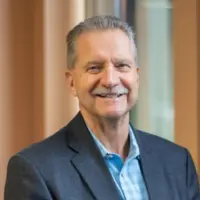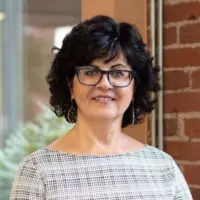About CHD Family Outreach
CHD Family Outreach of Amherst is located in Amherst, Massachusetts. They offer advocacy, information, transportation and translation services to documented and undocumented immigrants facing health problems, domestic violence or substance use challenges.
Comprehensive Care for Immigrants in Amherst
This program provides specialized programming tailored to meet the needs of immigrant families. They deliver support to over a hundred low income families each year.
They also connect clients to additional resources including financial benefits, transportation, life skills counseling, housing advocacy, parenting support and healthcare.
A Wide Range of Personalized Services
The program offers immediate assistance to individuals in crisis, including mothers, school counselors and physicians. They provide short term help with issues like landlord mediation, working with landlords to prevent evictions and educating tenants to maintain housing stability. They also help with childcare access and medical emergencies.
Laura Reichsman, the Program Director, says, “I think the key in helping these individuals and families is that they must be experts in their own lives . . . we have to meet people where they’re at.”
Convenient Downtown Location
The convenient location of this facility stands out to me. It’s situated in downtown Amherst, providing easy access to services that may support healing and recovery.
Amherst College and the University of Massachusetts Amherst are both within close proximity, offering educational and community resources. The Emily Dickinson Museum provides opportunities for cultural enrichment, while the Amherst Town Common meets shopping and dining needs. If you’d like a quiet place to relax and reflect during treatment, you may consider visiting Puffers Pond.
Rehab Score
Location
Addiction Treatments
Treatments
The goal of treatment for alcoholism is abstinence. Those with poor social support, poor motivation, or psychiatric disorders tend to relapse within a few years of treatment. For these people, success is measured by longer periods of abstinence, reduced use of alcohol, better health, and improved social functioning. Recovery and Maintenance are usually based on 12 step programs and AA meetings.
Addiction is a highly complex problem, and drug rehab in Massachusetts is often necessary to address it. These programs treat physical, mental, and relational issues that are involved. Treatment empowers individuals to manage these issues without the use of drugs.
Opioid rehabs specialize in supporting those recovering from opioid addiction. They treat those suffering from addiction to illegal opioids like heroin, as well as prescription drugs like oxycodone. These centers typically combine both physical as well as mental and emotional support to help stop addiction. Physical support often includes medical detox and subsequent medical support (including medication), and mental support includes in-depth therapy to address the underlying causes of addiction.
Substance rehabs focus on helping individuals recover from substance abuse, including alcohol and drug addiction (both illegal and prescription drugs). They often include the opportunity to engage in both individual as well as group therapy.
Programs
Adult rehab programs include therapies tailored to each client's specific needs, goals, and recovery progress. They are tailored to the specific challenges adult clients may face, including family and work pressures and commitments. From inpatient and residential treatment to various levels of outpatient services, there are many options available. Some facilities also help adults work through co-occurring conditions, like anxiety, that can accompany addiction.
Young adulthood can be an exciting, yet difficult, time of transition. Individuals in their late teens to mid-20s face unique stressors related to school, jobs, families, and social circles, which can lead to a rise in substance use. Rehab centers with dedicated young adult programs will include activities and amenities that cater to this age group, with an emphasis on specialized counseling, peer socialization, and ongoing aftercare.
Clinical Services
Research clearly demonstrates that recovery is far more successful and sustainable when loved ones like family members participate in rehab and substance abuse treatment. Genetic factors may be at play when it comes to drug and alcohol addiction, as well as mental health issues. Family dynamics often play a critical role in addiction triggers, and if properly educated, family members can be a strong source of support when it comes to rehabilitation.
Staff

Jim Goodwin
President & CEO

Tracey Decker
COO

Amale Neary
CFO

John Roberson
Chief Program Officer
Contact Information
401 Main st. Suite 12
Amherst, MA 01002
